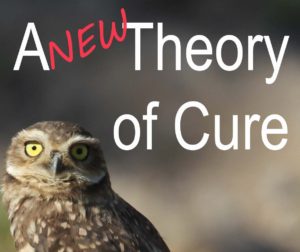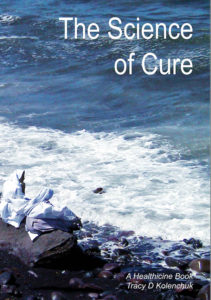Imagine for a moment, that you have cured disease considered to be incurable today. You have discovered a powerful new cure. Where might your dream lead? Perhaps a Nobel Prize in Medicine? Does that seem possible. Take a moment to think about it.
Can you name a single cure that won the Nobel Prize in Medicine? Maybe you can – perhaps penicillin. Yes. Sir Alexander Fleming, Ernst Boris Chain and Sir Howard Walter Florey “for the discovery of penicillin and its curative effect in various infectious diseases” in 1945.
Can you name the second cure that won the Nobel Prize? No you cannot. Over 130 Nobel Prizes have been issued in Physiology or Medicine. How about these? Which won for a cure?
Who won the Nobel Prize for their cure?
- 2015, 2015 to William C. Campbell and Satoshi Ōmura “for their discoveries concerning a novel therapy against infections caused by roundworm parasites” and to Tu Youyou “for her discoveries concerning a novel therapy against Malaria” (the curative properties of Ivermectin)
- 2005, Barry J. Marshall and J. Robin Warren “for their discovery of the bacterium Helicobacter pylori and its role in gastritis and peptic ulcer disease” (curing ulcers)
- 1990, Joseph E. Murray and E. Donnall Thomas “for their discoveries concerning organ and cell transplantation in the treatment of human disease” (curing by transplantation
- 1952, Selman Abraham Waksman “for his discovery of streptomycin, the first antibiotic effective against tuberculosis” (curing tuberculosis)
- 1948, Paul Hermann Müller “for his discovery of the high efficiency of DDT as a contact poison against several arthropods” (curing lice infections)
- 1945, Henrik Carl Peter Dam “for his discovery of vitamin K” and Edward Adelbert Doisy “for his discovery of the chemical nature of vitamin K” (curing Vitamin K deficiency and subsequent bleeding)
- 1939 Gerhard Domagk “for the discovery of the antibacterial effects of prontosil” (curing gram-positive cocci infections)
- 1929, Christiaan Eijkman “for his discovery of the antineuritic vitamin”Sir Frederick Gowland Hopkins “for his discovery of the growth-stimulating vitamins” (curing beriberi)
- 1923, Frederick Grant Banting and John James Rickard Macleod “for the discovery of insulin” (widely reported in the media as a cure for diabetes)
- 1901, Emil Adolf von Behring “for his work on serum therapy, especially its application against diphtheria, by which he has opened a new road in the domain of medical science and thereby placed in the hands of the physician a victorious weapon against illness and deaths” (curing diphtheria)
All of the above? Some of the above? None of the above?
The correct answer is NONE OF THE ABOVE. All of the above were awarded the Nobel Prize in Medicine, for the reasons listed, but
NONE for cures.
The cure phrases were added by me, to describe their discoveries from a cure perspective. But the Nobel Committee did not use the word cure for any of them.
The only Nobel Prize, in it’s entire 133 year history, awarded for a cure. Flemming for the antibiotic penicillin.
The Nobel Prize has not recognized a single “cure” before or since 1945. Their only, and the last award for a cure was almost 80 years ago. The Nobel Prize in Medicine, apparently, does not recognize cures. Does not award prizes for cures.
So, if you find a cure – it seems – they don’t care? Or is it just that there haven’t been any cures found since 1945?
Have any cures been discovered since 1945? Do any of the above awards go to someone who discovered a cure? Of course. Even insulin, now widely recognized as “not a cure for diabetes” was widely published as a cure when it was isolated.
The Nobel Prize in 2005 was given to “Barry J. Marshall and J. Robin Warren” The Nobel Prize page for Barry J Marshall says: “Warren and Marshall proved in 1982 that patients could only be cured if the bacteria were eliminated.” But the prize is for “for their discovery of the bacterium Helicobacter pylori and its role in gastritis and peptic ulcer disease.” Not for curing any disease.
And in 1952, the Nobel Prize was given to Selman Abraham Waksman, and the Nobel Prize page on Walksman says “the hunt for a cure began” in 1939. But the prize does not mention cure, instead it says “for his discovery of streptomycin, the first antibiotic effective against tuberculosis.” and “which proved an effective medicine against tuberculosis.” The word cure is not used. No credit is given for any cure.
In 1948, the Nobel Prize was given to Paul Hermann Müller and his page on the Nobel Prize Website says that with DDT, “people could curb the spread of malaria and halt an epidemic of typhus,” but the word CURE is not used. There is also a note that DDT was discovered to have many dangers.
In 1945, the Nobel Prize was awarded to Henrik Carl Peter Dam with the information that “This knowledge became especially important in treating bleeding among small children.” The word “treatment” is used, but not cure.
In 1929, Christiaan Eijkman and Sir Frederick Gowland Hopkins‘ work on beriberi led to an understanding of the cause and subsequently the cure. But the Nobel Prize does not use the word cure in the prize description nor in the individuals detail pages.
In 1923, Frederick Grant Banting and John James Rickard Macleod discovered of insulin which revolutionized the treatments for diabetes. Insulin was reported by many to be the “cure” for diabetes – a claim that is debated today, although without a definition of diabetes cured. The Nobel Prize descriptions do not use the word cure.
Why doesn’t the Nobel committee use the word cure? I suspect it’s because they want to appear authoritative and scientific. And that’s the problem. Cured is not defined scientifically. Cured is not defined medically. Modern medicine has no general theory of cure and no test of cured for most diseases. It’s not hard to define cure clearly. I have studied the word cure, and the meanings of cure, cures, curing and cured since 2016 – and searched extensively for a medical or scientific definition. None exits. My most recent paper on Academia.edu Theory of Cure – 2023 Update provides a comprehensive theoretical framework for the study of all cures of any curable disease. But no such theory exists in the sciences or practices of medicine today. There is no interest in cure.
So, the Nobel committee has a problem, which they solve by avoiding the word “cure”.
So, if you discover a cure for an incurable disease – you might win a Nobel for your discovery, but not for your “cure”.
to your health, tracy
Author: A New Theory of Cure


